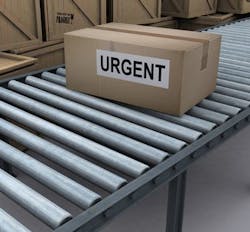The problem is buried in the U.S. and international import/export regulations. You see, PPE is viewed by the regulators as having the universal ability to protect the “good guys” and the “bad guys” without distinction. Protecting the bad guys is not in the best interest of the United States nor of any other country. It is this fundamental mission that causes import/export regulators sleepless nights. Regulators are equal-opportunity communal beings – if they are having nightmares, so will you!
Simply put, if anything is military spec or if anything can be used in a military application (dual use); it is highly likely that you will need professional help in understanding domestic and international import/export laws before you pack and ship.
The formidable tug-of-war between operation management (get this project out ASAP) and compliance (slow down, do it right) is a top reason why organizations may find themselves in non-compliant situations. Violations of U.S. import/export controls can result in significant penalties such as suspension or loss of export privileges, seizure and forfeiture of goods, criminal penalties including imprisonment for up to 10 years and fines up to $1 million per violation. Foreign country penalties can be even worse.
Here’s what to look out for:
International Traffic in Arms Regulations (ITAR)
- Administered by the U.S. Department of State
- Covers articles and services on the U.S. Munitions List (PPE is #10) to include technical data, defense services and brokering of defense articles or services
Export Administration Regulations (EAR)
- Administered by the U.S. Department of Commerce
- Regulates commercial items and technologies listed on the Commerce Control List
- Regulates the “dual-use” items, meaning that although the items are designed for and used commercially, they also can be used for military purposes (PPE anyone?)
Office of Foreign Assets Controls (OFAC)
- Administered by U.S. Department of Treasury
- Enforces economic embargoes and trade sanctions based on U.S. foreign policy and national security goals against the designated “bad guys”
- Lists countries and entities you cannot do business with
Customs and Border Protection (CBP)
- Administered by the U.S. Department of Homeland Security
- Enforces import regulations and other multiple agency requirements to include ITAR and EAR
The import/export regulatory landscape is only becoming more complex. There is a sea of gray when defining whether an item falls under EAR or ITAR or OFAC or CBP, but no matter what the item is, knowledge, documentation and tracking are the keys to success.
The bottom line: When shipping anything internationally, it is highly recommended that you and your organization understand the applicable regulations before action is taken. Your due diligence will save the day and will expose what is lurking underneath that crisp shipping label!
J.A. Rodriguez Jr., CEO of Make My Day Strategies LLC, is also an international Fortune 100 EHS senior manager, entrepreneur, a patented inventor, engineer, certified safety professional, professional speaker, member of the Industry Advisory Council at Western New England University, an elected Board Member of the national Voluntary Protection Program Participants’ Association, author of the book Not Intuitively Obvious – Transition to the Professional Work Environment,and an overall great guy.

